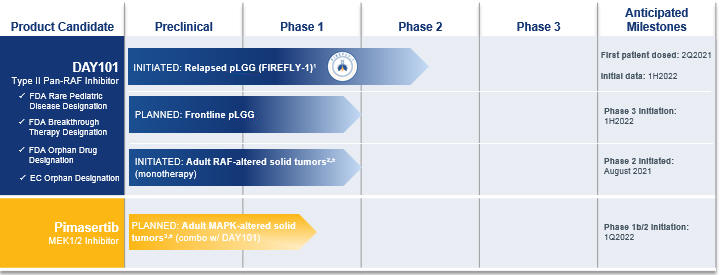disasters, terrorism, global pandemics, war and telecommunication and electrical failures, as well as security breaches from inadvertent or intentional actions by our personnel or those of our CROs, CMOs, vendors, contractors, consultants, business partners and/or other third-party partners, or from cyber-attacks by malicious third parties (including through viruses, worms, malicious code, malware, ransomware,
attacks, social engineering and other means to affect service reliability and the confidentiality, integrity and availability of information), which may compromise our system infrastructure, or that of our CROs, CMOs, vendors, contractors, consultants, and other third-party partners, or lead to data leakage.
The risk of a security breach or disruption, particularly through cyber-attacks or cyber intrusion, including by computer hackers, viruses, foreign governments, and cyber terrorists, has generally increased as the number, intensity and sophistication of attempted attacks and intrusions from around the world have increased. The
COVID-19
pandemic is generally increasing the attack surface available for exploitation, as more companies and individuals work online and work remotely, and as such, the risk of a cybersecurity incident potentially occurring, and our investment in risk mitigations against such an incident, is increasing. For example, there has been an increase in phishing and spam emails as well as social engineering attempts from “hackers” hoping to use the recent
COVID-19
pandemic to their advantage. We may not be able to anticipate all types of security threats, nor may we be able to implement preventive measures effective against all such security threats. The techniques used by cyber criminals change frequently, may not be recognized until launched, and can originate from a wide variety of sources, including outside groups such as external service providers, organized crime affiliates, terrorist organizations or hostile foreign governments or agencies. To the extent that any disruption or security breach were to result in a loss of, or damage to, our data or applications, or those of our CROs, CMOs, vendors, contractors, consultants, and other third-party partners, or inappropriate disclosure of confidential, sensitive, or proprietary information, we could incur liability and reputational damage and the further development and commercialization of DAY101, pimasertib, or any future product candidates could be delayed. Any breach, loss or compromise of proprietary, sensitive, or confidential information may also subject us to civil fines and penalties, including under HIPAA, and other relevant state and federal privacy laws in the United States. For example, the California Consumer Privacy Act of 2018, or the CCPA, imposes a private right of action for security breaches that could lead to some form of remedy including regulatory scrutiny, fines, private right of action settlements, and other consequences.
The costs related to significant security breaches or disruptions could be material and exceed the limits of the cybersecurity insurance we maintain against such risks. If the information technology systems of our CROs, CMOs, vendors, contractors, consultants, and other third-party partners become subject to disruptions or security breaches, we may have insufficient recourse against such third parties and we may have to expend significant resources to mitigate the impact of such an event, and to develop and implement protections to prevent future events of this nature from occurring.
We cannot assure you that our data protection efforts and our investment in information technology will prevent significant breakdowns, data leakages, breaches in our systems, or those of our CROs, CMOs, vendors, contractors, consultants, and other third-party partners, or other cyber incidents that could have a material adverse effect upon our reputation, business, operations or financial condition. For example, if such an event were to occur and cause interruptions in our operations, or those of our third-party CROs, CMOs, vendors and other contractors and consultants, it could result in a material disruption of our programs and the development of our product candidates could be delayed. In addition, the loss of clinical trial data for DAY101, pimasertib, or any other product candidates could result in delays in our marketing approval efforts and significantly increase our costs to recover or reproduce the data. Furthermore, significant disruptions of our internal information technology systems or those of our third-party CROs, CMOs, vendors and other contractors and consultants, or security breaches could result in the loss, misappropriation and/or unauthorized access, use, or disclosure of, or the prevention of access to, confidential information (including trade secrets or other intellectual property, proprietary business information and personal information), which could result in financial, legal, business and reputational harm to us. For example, any such event that leads to unauthorized access, use, or disclosure of personal information, including personal information regarding our clinical trial subjects or personnel, could harm our reputation directly, compel us to comply with federal and/or state breach notification laws and foreign law equivalents, subject us to mandatory corrective action, and otherwise subject us to liability under laws and regulations that protect the privacy and security of personal information, which could result in significant legal and financial exposure and reputational damages that could potentially have an adverse effect on our business.
